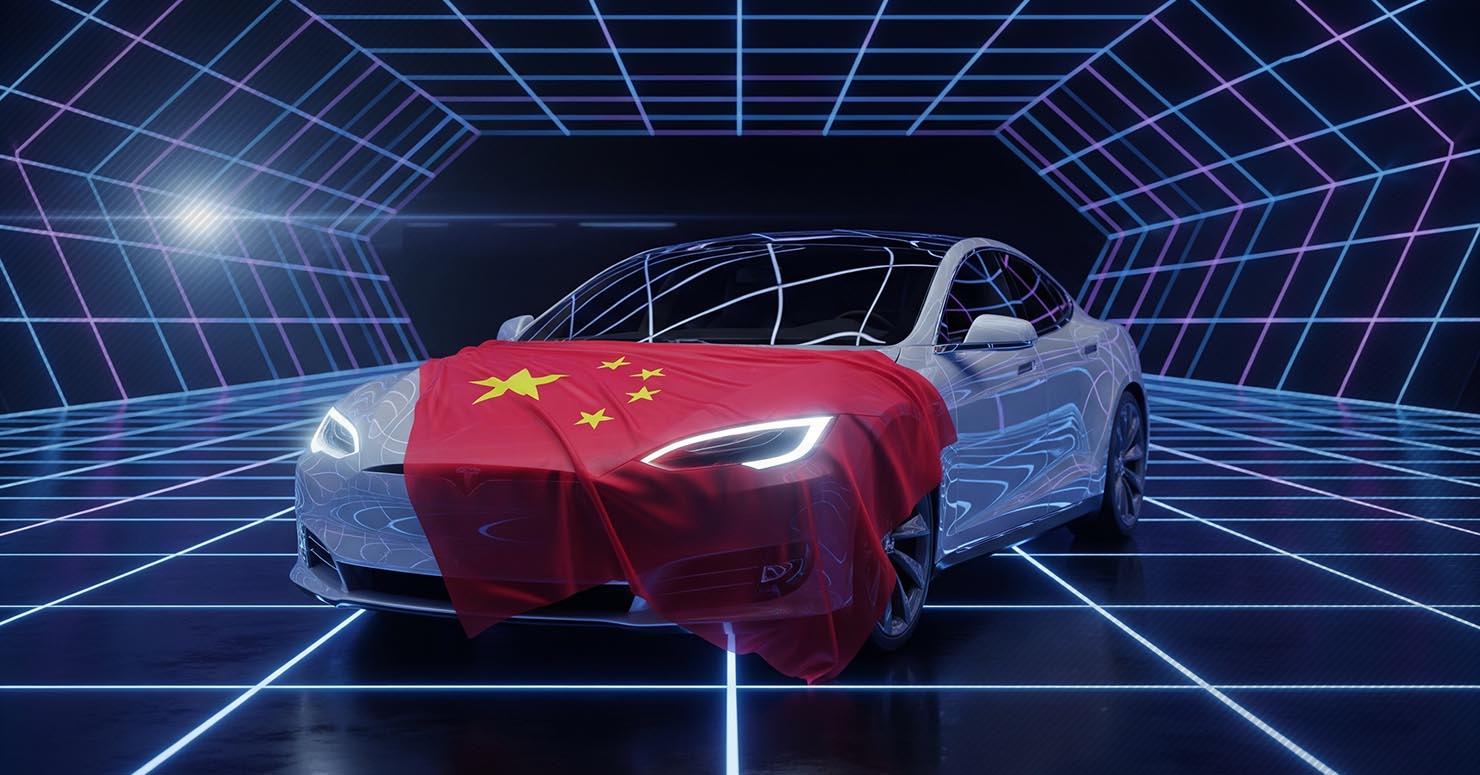In a stunning move that signals a major strategic shift, the new Tesla China AI partnership with local tech giants ByteDance and DeepSeek is now official.
This development is a profound compromise for a company renowned for its fierce in-house innovation. It’s a clear signal that to win in China, even the most self-reliant companies must play by a different set of rules. The core of this story isn’t just about technology; it’s about geopolitics and the non-negotiable reality of China’s “digital sovereignty.”
The news, which surfaced alongside registration filings for a new long-wheelbase Model Y, reveals a critical truth about the global tech landscape. The core of this story isn’t about technology; it’s about geopolitics and the non-negotiable reality of China’s “digital sovereignty.”
This report by Basma Imam dives deep into the Tesla China AI partnership, analyzing why the world’s most advanced EV company is “borrowing” brains from local players and what this means for the future of its ambitions, especially for Full Self-Driving (FSD) in the region.
The Unlikely Alliance: Teaming Up with ByteDance and DeepSeek
According to a report from Technode, Tesla is integrating AI models from two of China’s most formidable tech companies. These are not minor players:
-
- ByteDance: The parent company of TikTok (and Douyin in China), ByteDance is a world leader in recommendation algorithms and has been heavily investing in its own large language models.
- DeepSeek: A rising star in the Chinese AI scene, DeepSeek has produced powerful open-source models that have impressed the global developer community.
This partnership is not for show. It’s a fundamental integration into the car’s user-facing AI features. The decision to partner with such high-caliber local companies shows that this is a serious, calculated move by Tesla to tailor its product specifically for the Chinese market.
The Real Reason: Navigating the Great Wall of Data
So, why would Tesla, a company that prides itself on its world-leading AI, need help? The answer lies in China’s strict data laws. The Chinese government has implemented a comprehensive legal framework that governs data collection, storage, and processing, all under the umbrella of national security.
The key principles are:
- Data Localization: Data generated within China about Chinese citizens must, for the most part, be stored on servers within China.
- State Scrutiny: AI models and algorithms operating in China must be approved by regulators to ensure they align with state interests and do not pose a security risk.
Tesla’s own AI and FSD models have been trained on a massive, global dataset. Transferring vast amounts of data from Chinese roads and users out of the country for processing is a regulatory non-starter.
By partnering with local companies whose models have already been trained on local data and are compliant with local laws, Tesla is essentially taking a shortcut through a complex and politically sensitive approval process.
This is a pragmatic move to ensure their cars remain competitive and compliant, a strategy that is becoming increasingly common as tech companies grapple with the rise of the “splinternet.”
The FSD Trojan Horse
While the initial partnership may focus on in-car voice assistants or infotainment features, the ultimate prize for Tesla is the nationwide rollout of Full Self-Driving (FSD) in China. This is where the true value lies.
FSD requires collecting and processing immense amounts of video data from the car’s surroundings an activity that is under intense scrutiny from Chinese regulators.
This partnership could be a “Trojan horse” strategy. By proving that they are willing to work with local, government-approved AI partners for less sensitive in-car features, Tesla builds trust with regulators.
This could pave the way for a future arrangement where a local partner (perhaps even one of these) is involved in the data processing for FSD, a necessary compromise to get the feature approved.
This pragmatic approach is a far cry from the combative stance Musk often takes with rivals, as seen in the Elon Musk OpenAI Microsoft warning, showing his ability to adapt his strategy to different markets.
A Pragmatic Compromise or a Dangerous Precedent?
Elon Musk’s decision is, above all, a pragmatic one. It acknowledges the reality that the Chinese market operates under a different set of rules.
However, it also sets a powerful precedent. It signals to other Western tech companies that to gain access to China’s massive market, they may have to be willing to integrate core technologies from local, state-approved partners.
This raises long-term questions about technology transfer, intellectual property, and the competitive landscape.
For now, it’s a calculated risk for Tesla a necessary compromise to unlock the vast potential of the world’s largest electric vehicle market.
It’s a clear demonstration that in the global world of AI, sometimes the smartest move is to admit you can’t do it all alone.
Frequently Asked Questions (FAQ)
1. Is Tesla no longer using its own AI in China?
Tesla will still use its own core AI for vehicle dynamics, battery management, and its FSD software stack. This partnership is likely for user-facing features like the voice assistant and infotainment system, which require processing of local language and data.
2. Why are ByteDance and DeepSeek good partners for Tesla?
ByteDance is a world leader in recommendation algorithms and user engagement, which is valuable for infotainment. DeepSeek is a respected and powerful large language model developer in China, making them a strong choice for a compliant and capable in-car assistant.
3. Does this mean FSD will be available in China soon?
This partnership is a significant step towards getting FSD approved, but it does not guarantee an immediate rollout. FSD approval will still require a lengthy and complex regulatory process with Chinese authorities.
4. What are China’s data localization laws?
These are a set of regulations that require companies to store and process data collected on Chinese citizens on servers located physically within China’s borders. This is a key component of the country’s national security and digital sovereignty policies.
